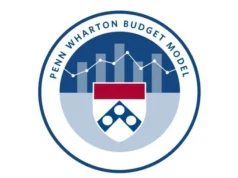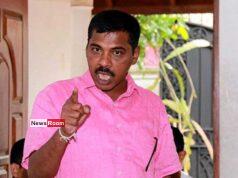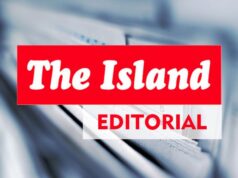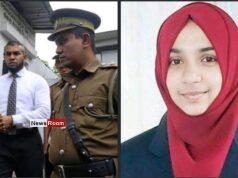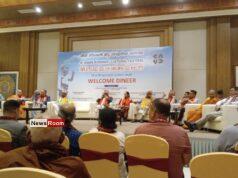By Shamindra Ferdinando
Former Auditor General Gamini Wijesinghe yesterday (06) said that the weakening of the National Audit Bill, before Parliament endorsed the new law in early July 2018, too, had contributed to the collapse of the national economy. Alleging that the then Sirisena-Wickremesinghe coalition and influential public servants sabotaged their efforts to introduce a new law that could have been effectively used against corruption at all levels, Wijesinghe pointed out that the recently issued IMF’s Governance Diagnostic Assessment report on Sri Lanka demanded that the National Audit Act should be amended.
Although the Act provided for the powers, duties and functions of the Audit Service Commission and the establishment of the National Audit Office and the Sri Lanka State Audit Service and specified the role of the Auditor General over public finance, the then government ensured it lacked key provisions to deal with public sector waste, corruption, irregularities and mismanagement, Wijesinghe said.The IMF’s 16-point preconditions for the resumption and continuation of USD 2.9 bn bailout package exposed our entirely corrupt political party and public administration system, the retired Auditor General said. Those in Opposition couldn’t exploit the IMF’s demands for their advantage because they, too, were responsible for ruination of the national economy.
Wijesinghe said so responding to SJB lawmaker Dr. Harsha de Silva’s declaration that the failure on the part of the government to address deep-rooted corruption hampered financial recovery. Wijesinghe, who served as the AG from Nov. 2015 to April 2019, emphasized that economist Harsha represented the UNP at the time that party sabotaged the National Audit Bill. “What was finally enacted by the UNP and SLFP combine didn’t address primary concerns,” the outspoken official said, adding that the original Bill was meant to rein in top public sector management responsible for massive corruption.
Responding to another query, Wijesinghe said that the enactment of the new National Audit Bill was a key pledge made by the UNP-led coalition that backed Maithripala Sirisena at the 2015 January presidential election. Actually, it was to be introduced on 19 Feb., 2015, at the commencement of their 100-day Yahapalana programme, the present day civil society activist said, adding that the UNP and those who now represented the main Opposition SJB and the then divided UPFA worked against their effort.
Wijesinghe alleged that major political parties feared offending the public service. According to Wijesinghe, political parties pursued strategies in collaboration with the top management of the public administration for their benefit. “The position taken by the IMF should be appreciated and supported though the country was humiliated”, but such external pressure from lending bodies and bilateral donors were required to compel the parliament to take remedial measures the ex-AG said.
Declaring whatever the lame excuse trotted out by the government the IMF had suspended the second tranche amounting to USD 330 mn pending fresh staff-level agreement with Sri Lanka, Wijesinghe said that regardless the country being in such a precarious situation, the Parliament continued to turn a blind eye. “Allegations traded by government and Opposition members do not serve any purpose.
Whatever happens they are still committed to continue with the same system,” Wijesinghe said, pointing out that no political leader had the courage to tackle corruption. Referring to Treasury bond scams that had been perpetrated in Feb. 2015 and March 2016, the former Auditor General said that the Parliament’s response proved the public couldn’t depend on the legislature. Wijesinghe said that Sri Lanka should have acted two decades ago when corruption emerged as a major threat to political, economic and social stability.
The IMF’s demands (1) Establishment of an Advisory Committee by November 2023 to nominate commissioners for the Commission to Investigate Allegations of Bribery or Corruption (CIABOC), (2) Disclosure of asset declarations of senior officials by July 2024, (3) Enactment of proceeds of crime legislation by April 2024, (4) Amendment of the National Audit Act, (5) Finalization of implementation of regulations for beneficial ownership information and creating a public registry by April 2024, (6) Enactment of Public Procurement Law by December 2024, (7) Publishing reports on increasing competitive tendered procurement contracts, targeting agencies with low levels of competition, (8) Requiring the publication of all public procurement contracts above LKRs 1 billion, (9) Implementing the State-Owned Enterprise Reform Policy to ensure ethical management, (10) Abolishing or suspending the Strategic Development Projects Office Act until a transparent process for evaluating proposals is established, (11) Amending tax legislation to prevent unilateral tax changes without parliamentary approval, (12) Implementing short-term anti-corruption measures within revenue departments to enhance oversight and sanctions, (13) Exploring options for new management arrangements for the Employees Provident Fund to avoid conflicts of interest, (14) Revising legislation, regulations, and processes for stronger oversight in the banking sector, (15) Establishing an online digital land registry and ensuring progress in registering/titling-state land and (16) Expanding the resources and skills available to the Judicial Services Commission to strengthen justice.


